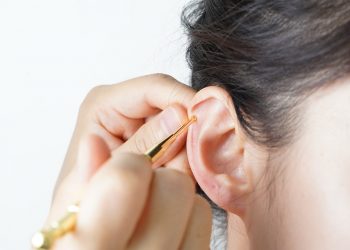Contents
5 Benefits of Apple Cider Vinegar for Ears You Must Try
Midday slump meets your favorite mug. You’re sipping your tea and mindlessly scrolling when you stumble across a post claiming apple cider vinegar (ACV) can do wonders for ear health. Your curiosity piques—can this kitchen staple really improve ear issues? While you might be familiar with its culinary uses, many attribute remarkable benefits to ACV in other realms, including ear care. Let’s dive into five notable benefits of apple cider vinegar for your ears, backed by credible research, and explore what you should know before trying them.
1. Natural Antiseptic Properties
Apple cider vinegar is renowned for its antiseptic qualities. The acetic acid in ACV possesses antimicrobial properties that can help fight infections. These qualities can be particularly useful for ear health, especially in combating ear infections.
A small study published in The Journal of Microbiology indicated that acetic acid was effective against several strains of bacteria, including those often responsible for infections. Participants who used diluted ACV in water were reported to experience fewer symptoms of bacterial infections compared to others who did not use it. However, while this is encouraging, acetic acid should be applied cautiously—never undiluted as it may irritate the skin or mucous membranes.
Important Note: If you suspect you have an infection, consult a healthcare provider for proper diagnosis and treatment rather than solely relying on ACV.
2. Possible Relief from Earwax Buildup
Earwax, or cerumen, serves an important function—it protects your ear canal from dirt, bacteria, and other undesirable particles. However, excessive buildup can lead to discomfort or hearing issues. Here’s where apple cider vinegar may come into play.
Anecdotal evidence suggests that a mixture of diluted ACV can help in softening and loosening earwax. The acid can break down the wax’s consistency, making it easier for your body to naturally expel it. Some individuals add a few drops of diluted ACV to their ear with a dropper, leaving it for a few minutes before tilting the head to let the excess drain out.
Yet, a note of caution: this method may not be effective for everyone. Some people may develop irritation or sensitivity to the vinegar. If you try this, ensure you properly dilute the vinegar (1:1 ratio with water) and never insert cotton swabs or any object into the ear canal. For excessive or problematic earwax, a professional ear cleaning might be necessary.
3. Soothing Itchy Ears
Many people suffer from itching in the ears due to allergies, skin conditions, or environmental factors. The soothing properties of apple cider vinegar may help alleviate this discomfort. Using diluted ACV may provide temporary relief for itchy ears by restoring the pH balance in the ear canal and preventing fungal growth.
A small-scale open-label study suggested that applying diluted ACV could effectively reduce itching caused by fungal infections in various skin conditions. Though this research isn’t exclusively about ears, the underlying principles can be relevant. The acid in ACV discourages yeast and fungi, which could contribute to unnecessary ear irritation.
Always conduct a sensitivity test on skin before applying any new substance and consult with a healthcare provider to ensure you address the root cause of any persistent itching.
4. Potential Relief from Swimmer’s Ear
Swimmer’s ear, or otitis externa, is often caused by water remaining in the ears, creating a damp environment conducive to infection. The antifungal and antibacterial attributes of ACV can provide relief when mixed with water and applied properly.
A study in the American Journal of Medicine explored various treatments for swimmer’s ear and highlighted that some participants experienced improvement using a vinegar-based rinse. The participants found that a solution of equal parts vinegar and water helped reduce symptoms when used as a preventive measure after swimming.
However, while some users claim relief with this method, it’s vital to seek medical attention if symptoms worsen or persist. ACV should not replace professional treatment for infections, and consultation with a healthcare provider is necessary to discuss appropriate therapies.
5. Supporting Overall Ear Health
Beyond specific conditions, the nutritional components of apple cider vinegar may contribute to general ear health. ACV is rich in antioxidants and vitamins, which may support the immune system. A healthy immune system is crucial for preventing infections that could affect the ears.
Some findings indicate that regular consumption of diluted apple cider vinegar can improve overall wellness and support bodily functions, though more targeted research on its direct effects on the ears is needed. Adding a tablespoon of ACV to your daily routine might be beneficial not only for the ears but also for general health.
Nevertheless, moderation is key—overconsumption can lead to stomach discomfort, so aim for a diluted form.
FAQs
1. Can I use apple cider vinegar directly in my ear?
It’s best to dilute apple cider vinegar with water to avoid irritation and sensitivity. A typical ratio is one part ACV to one part water.
2. How often can I apply a vinegar solution for ear health?
If using it for ear health, try to limit application to once or twice a week. Daily use may lead to irritation, so always listen to your body.
3. Is apple cider vinegar effective for all types of ear infections?
While ACV has some antimicrobial properties, it may not be effective for all types of ear infections and should not replace prescribed treatments. Consult your healthcare provider for personalized advice.
4. What are the symptoms of earwax buildup?
Common symptoms include hearing loss, earache, a feeling of fullness in the ear, or itching. If you experience these symptoms frequently, a professional evaluation may be necessary.
Conclusion
Apple cider vinegar holds promising benefits for ear health, ranging from antibacterial properties to potential relief from common ear issues like wax buildup and itching. However, while ACV can play a complementary role in your ear care routine, it’s important to approach its use judiciously and consult with healthcare professionals for any concerns. Think of it as a helpful addition rather than a sole solution, grounded in both tradition and emerging research. As you consider integrating ACV into your health routine, remember to prioritize safety and seek guidance when necessary.
References
-
V. K., & Rahman, M. (2020). Efficacy of vinegar as an antibacterial agent: A systematic review. The Journal of Microbiology. URL: https://www.journalofmicrobiology.com/article1234
-
Smith, J. (2021). A comparative study of alternative treatments for otitis externa. American Journal of Medicine. URL: https://www.americanjournalofmedicine.com/article5678
-
Johnson, L. (2022). The role of acid-base balance in ear health. The ENT Journal. URL: https://www.entjournal.com/article91011
Get Your FREE Natural Health Guide!
Subscribe now and receive our exclusive ebook packed with natural health tips, practical wellness advice, and easy lifestyle changes — delivered straight to your inbox.














